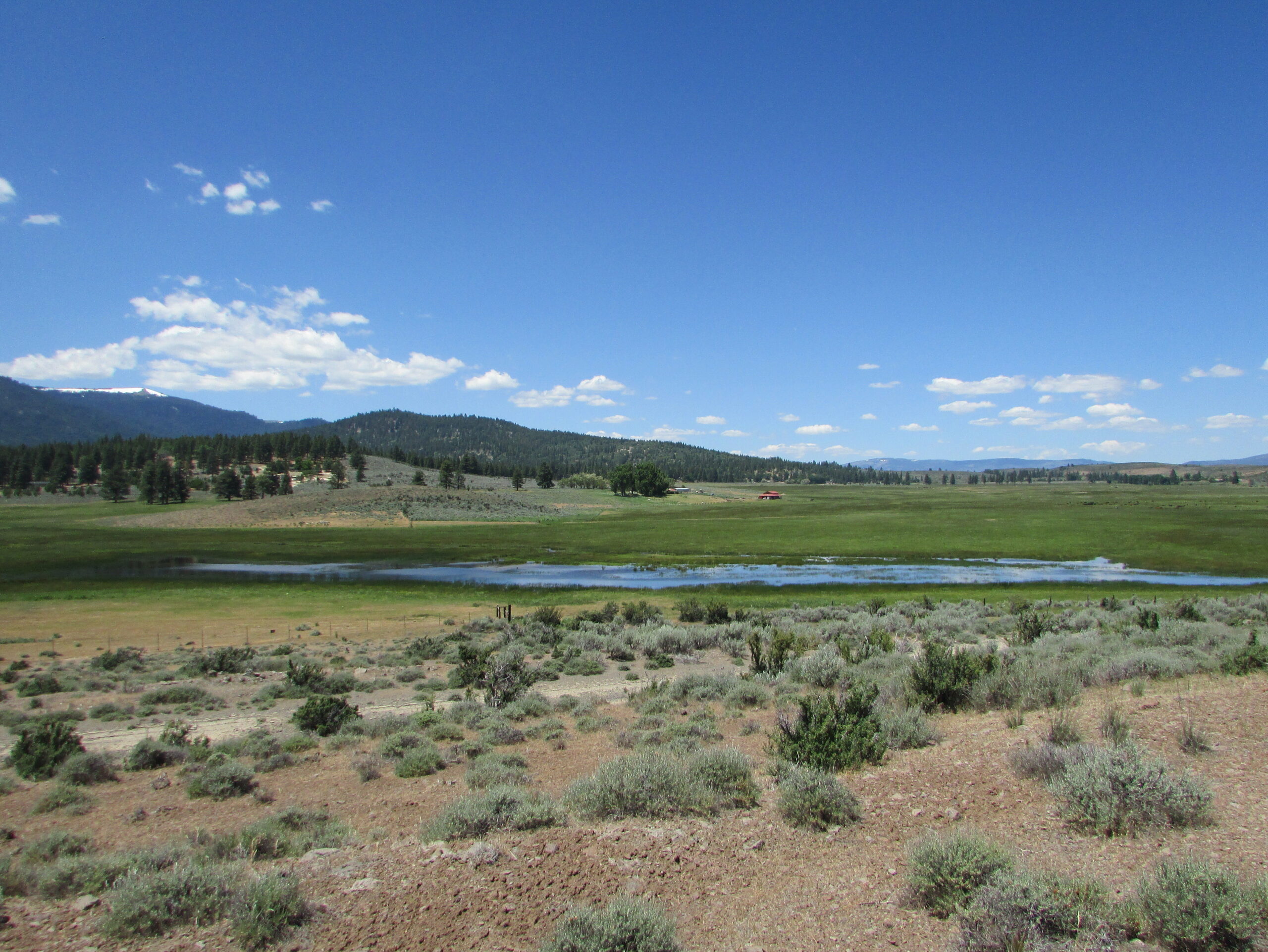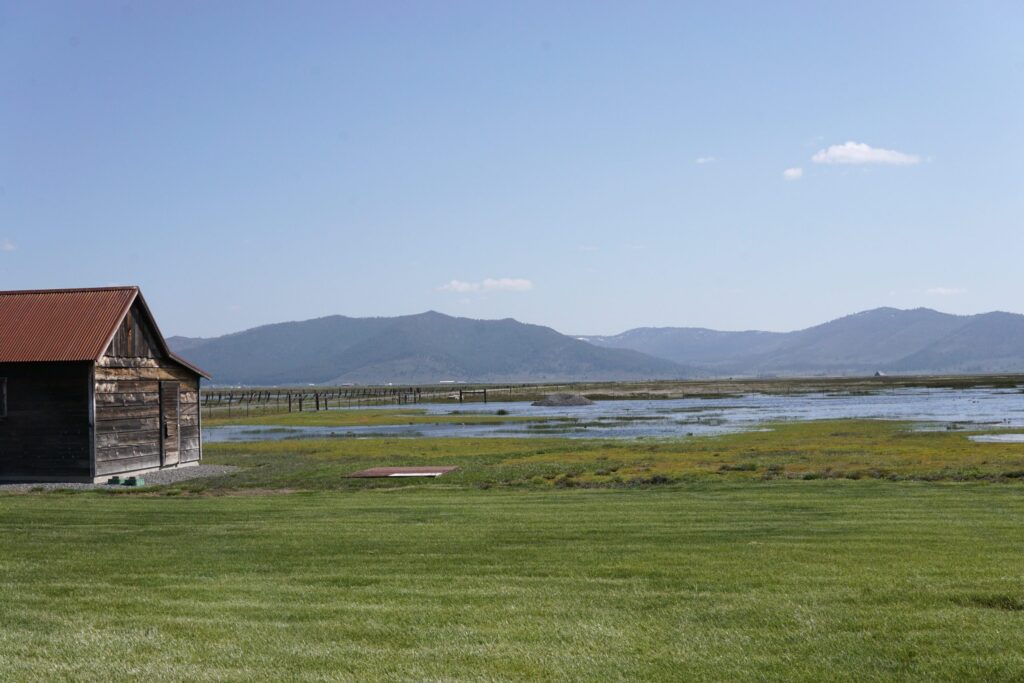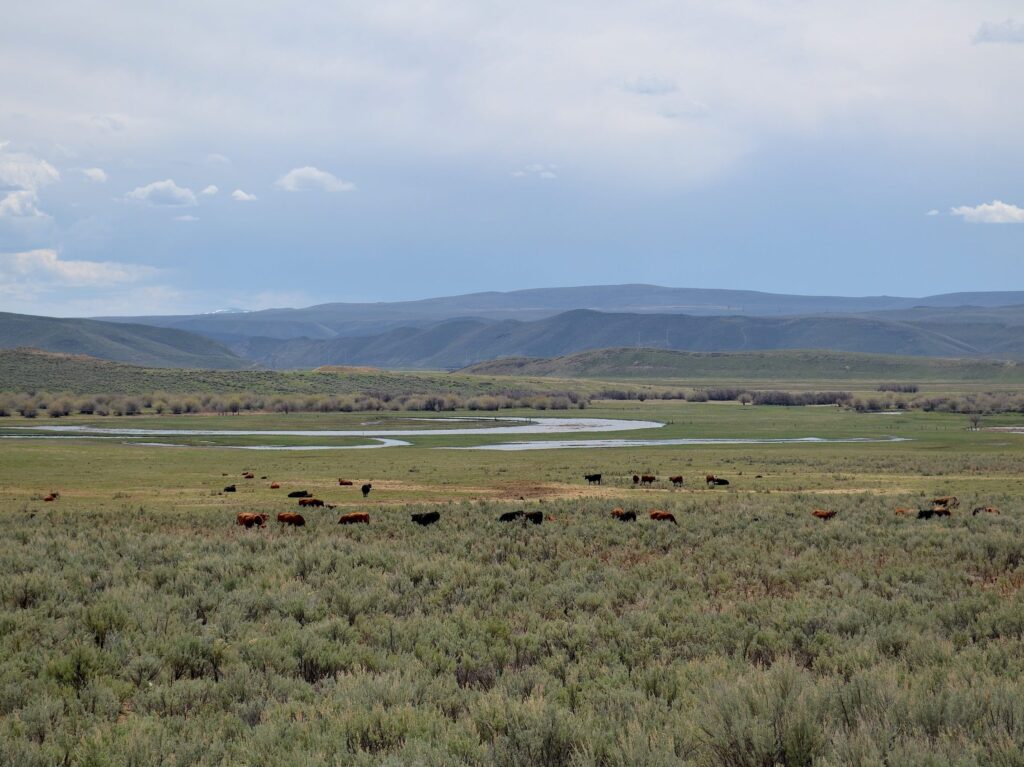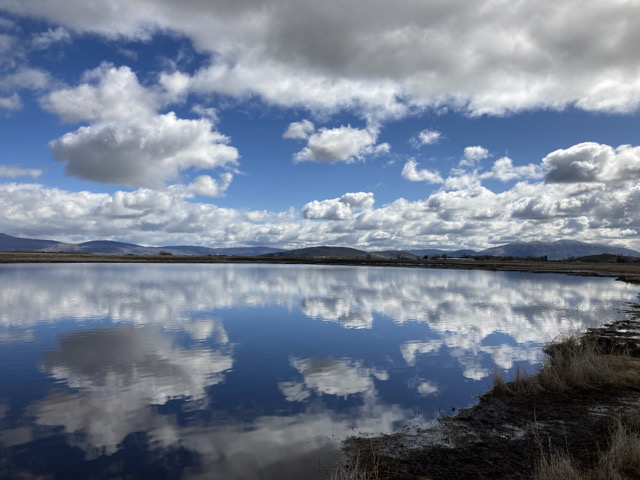By Ed Contreras
Over the last five years, the IWJV and its partners have been working to enhance and protect wetlands in the Southern Oregon-Northeastern California (SONEC) region. SONEC supports over six million wetland-dependent birds by providing important staging habitat for waterfowl during spring migration. Many large ranches in the remote and vast region have made use of historic wetlands as a source of forage for livestock. Flood irrigation is commonly used to produce hay and pasture on these ranches and has been used since these lands were homesteaded in the early twentieth century. In SONEC sub-basins, flood irrigation mimics historic wetland function and provides habitat for migratory birds to feed and amass energy before continuing north to breed. Working land conservation easements help ensure these private lands continue to be viable for agriculture and for migratory birds.
In 2016, the IWJV and Ducks Unlimited, with support from several partners, was awarded a Regional Conservation Partnership Program (RCPP) grant by the Natural Resources Conservation Service (NRCS) for the SONEC Working Wet Meadows Initiative (WWMI). The majority of the $2.6 million RCPP was allocated through the NRCS Agricultural Conservation Easement Program-Agricultural Land Easements (ACEP-ALE) program, for the acquisition of conservation easements on important privately-owned wetlands and further the conservation objectives of the SONEC WWMI. ACEP-ALE is a cost-share program that provides 50-75 percent of the easement value for eligible projects. These easements are held by a qualified land trust or third-party entity.
To identify the locations to protect and invest the RCPP ACEP-ALE funds, the IWJV relied on input from local conservation partners and land trusts. In the summer of 2018, the IWJV requested letters of interest to identify potential conservation easement projects with willing landowners in key SONEC sub-basins. A team of local conservation partners reviewed the five resulting applications and identified the top two projects based on a range of criteria including surface water persistence, proximity to other protected lands, and conservation history. One of these projects was the Elysian Creek Ranch near Janesville, CA. The timing of the RCPP ACEP-ALE funding was optimal for Amy Holmen of Lassen Land and Trails Trust, who had recently begun working with the landowner to plan a conservation easement.
The Elysian Creek Ranch is located within a large meadow complex at the confluence of Baxter Creek and Elysian Creek in northeastern California. The floodplain along Elysian Creek, which is augmented by irrigation ditches, hydrates a 227.5-acre meadow. The water that grows forage for livestock on these meadows provides habitat for spring migrating waterfowl and breeding birds like sandhill cranes and white-faced ibis. The property is also in close proximity to the Bass Hill Wildlife Area managed by California Department of Fish and Wildlife. The sagebrush slopes on the wildlife area serve as wintering habitat for mule deer that migrate out of the Sierra Nevada Mountains. Mule deer use the Elysian Creek Ranch as a corridor while transitioning between seasonal ranges.
The landowner at Elysian Creek Ranch has worked proactively with local conservation partners to enhance the property. With the assistance of the Susanville NRCS office, he is currently restoring the natural hydrology and complexity of the stream and improving floodplain connectivity by installing grade stabilization structures such as one-rock dams, headcut control structures, and beaver dam analogs. The landowner is also closely managing grazing along riparian areas. The astounding habitat value in conjunction with on-going conservation investments on the property and the landowner’s goal of protecting this resource in perpetuity made this project a perfect candidate for the SONEC RCPP.
The RCPP ACEP-ALE funding offered the first step toward protecting this property by providing 75 percent of the acquisition funding. The program required the remaining funding to be acquired in the form of a non-federal cash match, part of which could be donated by the landowner. However, for the transaction to be economically viable, the landowner was interested in securing the full remaining easement value from a non-federal source. An opportunity soon became available for the project to apply for a California Department of Fish and Wildlife (CDFW) grant program targeted specifically for mule deer and big game habitat. The Elysian Creek Ranch was awarded the grant, thereby acquiring the necessary match to fully fund the easement and be eligible for the RCPP ACEP-ALE funding.
Easements require a significant time investment; the development of this project and securing the easement funding took one year and six months. Several steps still remain until this project is fully closed, including preparing a baseline documentation report and monitoring plan and conducting the final appraisal. Lassen Land and Trails Trust and the NRCS anticipate fully completing the project in the next two years.
The significant investments of time and resources by multiple partners in this project will be visible to generations to come who observe the Elysian Creek Ranch from U.S. Highway 395 as it continues to provide habitat for migratory birds, big game, and other wildlife that relies on sagebrush uplands and seasonal wetlands. In addition, ranching practices and livestock grazing will continue as managers protect natural resource values, providing a win-win for habitat and agriculture. The IWJV and Ducks Unlimited extend special recognition to the following partners that made this project possible: California NRCS, Point Blue Conservation Science, Lassen Land and Trails Trust, CDFW, and a flexible and conservation-minded landowner.
Note: The 2020 ACEP-ALE program rules have changed the requirements for non-federal match and will now allow full donations from landowners as eligible match. Contact your local NRCS field office for more information on ACEP-ALE.



